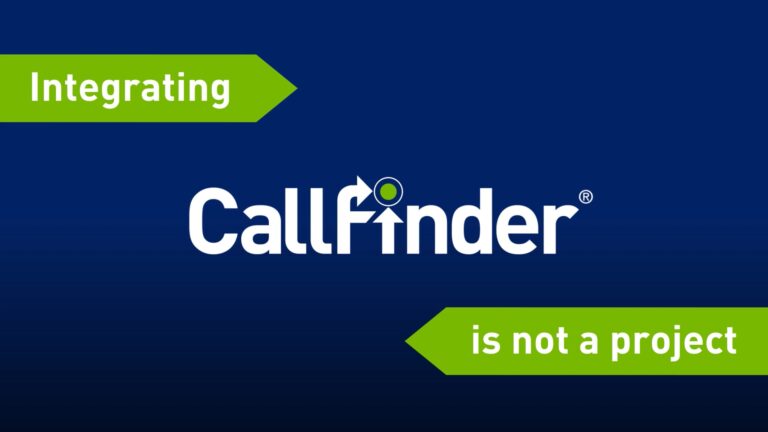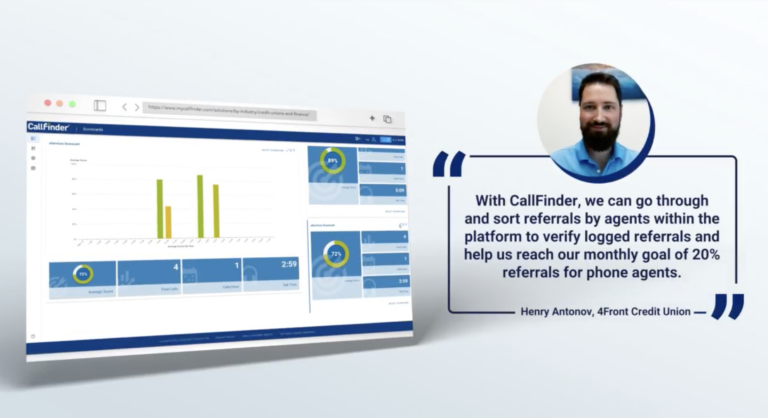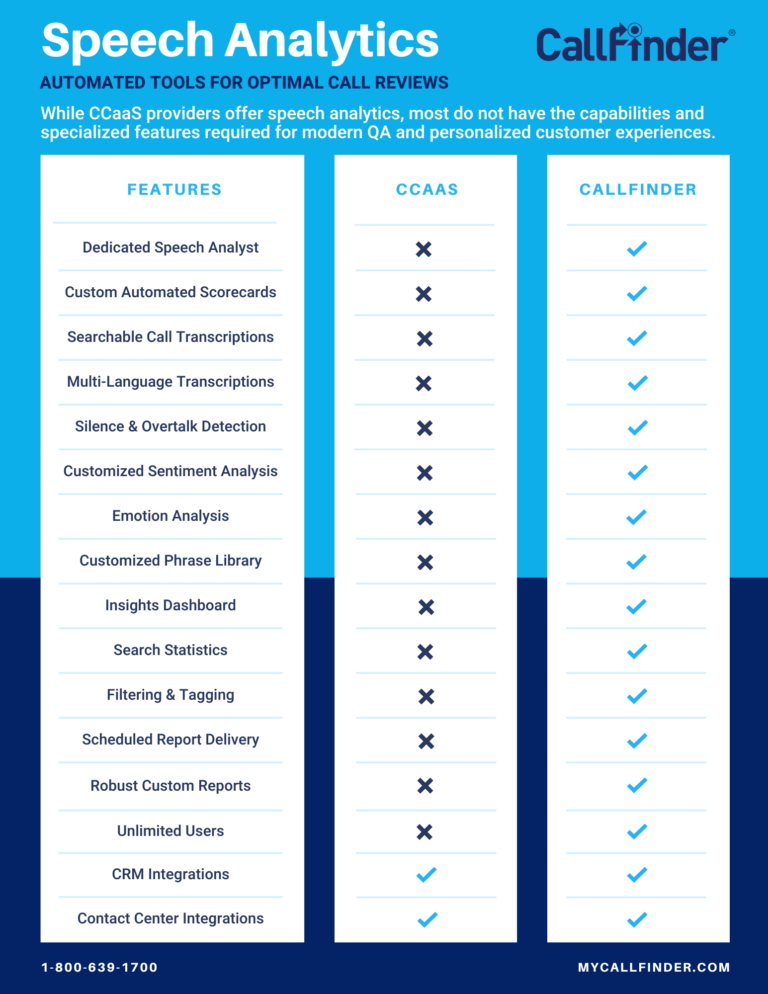One of the biggest mistakes with agent training in contact centers is only offering training when the agent is hired: Train them for a couple of hours, give them a manual, and push them out of the nest. This often results in the inability to handle tough situations. This leads to a poor customer experience and often, agent turnover. Instead of flying, many agents end up falling. In this post, we’ll teach you how to create better agent training with speech analytics.
Why Agents Need Consistent Training
Contact center agents need ongoing training to give them the skills and knowledge they need to consistently provide excellent customer service. This can seem daunting for many businesses, especially those whose contact centers receive high volumes of calls. Fortunately, tools such as speech analytics and call scoring automate call monitoring to provide an overview of an agent’s performance. This helps call center managers address specific training needs, and provides them the time to do so.
Speech Analytics Efficiently Identifies Training Opportunities
Many businesses use call recordings to monitor their agents’ interactions with customers. But manually listening to all calls can be incredibly time consuming. At the same time, listening to only a handful of recorded calls fails to offer a comprehensive picture of an agent’s performance.
With speech analytics, all recorded conversations are quickly scanned to detect specific words and phrases. These keywords and phrases are automatically categorized to pinpoint areas where an agent is succeeding and/or struggling. Speech analytics is also an excellent tool for ensuring script compliance, which is a major concern in certain industries.
Speech Analytics Gives Agents More Confidence
Empowering agents to offer a superior customer experience rather than punishing them is proven to be a more effective approach. If agents are not fully prepared for certain situations, whether it’s a problem they’re not equipped to resolve or managing a difficult customer, they often become discouraged and apathetic. But there is an easy solution to this problem.
By searching recorded calls for key phrases that reflect these situations, call center managers can use specific examples to show agents how to improve their response to customers. Using speech analytics for this type of training has proven to be an effective way to improve resolution rates. Armed with this knowledge, agents can then approach these issues with renewed confidence.
Call Scoring Helps Agents Improve Their Performance
Implementing automated call scoring is another way to improve agent training. Contact center agents are more likely to succeed if given thorough feedback on their performance. With call scoring, each call is evaluated by a predetermined set of metrics to help agents gain a clear understanding of both their strengths and weaknesses.
Calls can be scored on both an individual or group basis. Applying uniform standards across the board eliminates any chance of bias. Call scoring allows for more precise training and gives agents the information they need to make effective improvements; this in turn will improve the customer experience.
Conclusion
Studies show that 77% of people still prefer to use the telephone to reach a contact center agent. When customers call a business and interact with a skilled, knowledgeable, and helpful agent, they are given an optimal experience. All agents, from newbies to veterans, benefit with consistent and comprehensive training.
Here’s another way to look at it for our sports fans: Imagine two baseball players, both of whom keep striking out. The first player is simply told to keep swinging the bat, while the second is shown proper stance, how to grip the bat, etc. Which one do you think is more likely to hit a home run?











